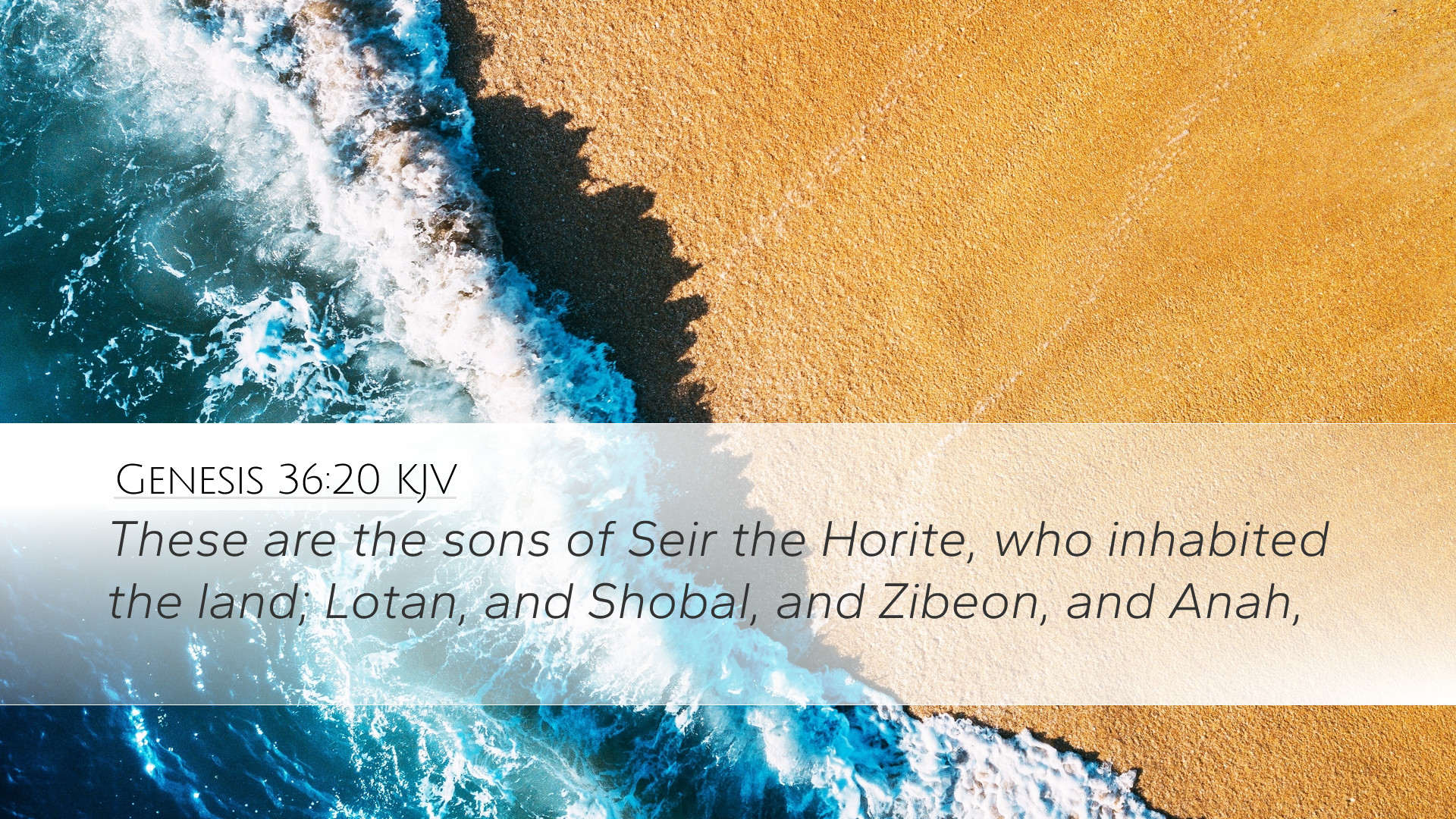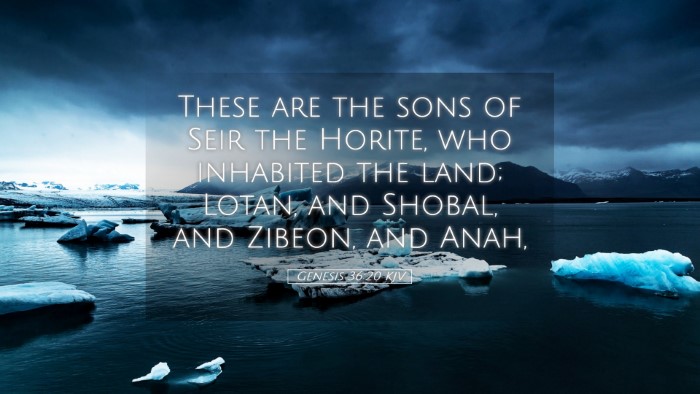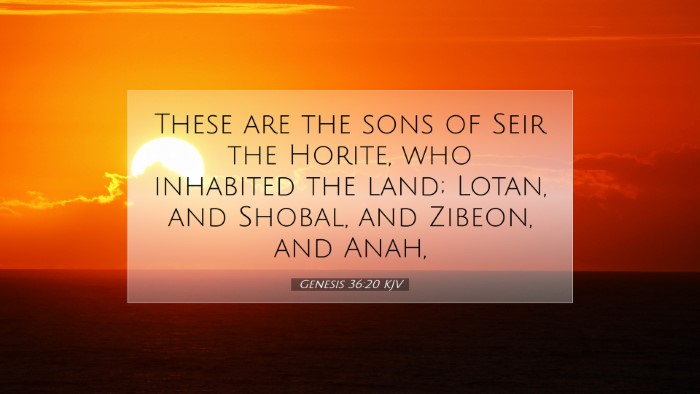Commentary on Genesis 36:20
Genesis 36:20 states: "These are the sons of Seir the Horite, who inhabited the land; Lotan and Shobal, and Zibeon, and Anah." This verse marks a significant point in the genealogical history of the Edomites, emphasizing their origins and connections with the Horites.
Contextual Overview
In the broader context of Genesis 36, we find a genealogical account that details the descendants of Esau, also known as Edom. This chapter serves to establish the lineage of the Edomites and their relationships with other peoples. It is important to understand that these genealogies are not mere lists of names but serve theological and historical purposes.
The Significance of Seir the Horite
Seir plays a pivotal role in this verse, representing the native inhabitants of the region prior to the arrival of the Edomites. The Horites, specifically, are cited as the original dwellers of the land:
- Historical Context: The Horites are explained in other biblical sources, particularly in Deuteronomy 2:12, where it states that Esau's people displaced the Horites from Seir.
- Theological Implications: This interaction implies a divine orchestration of territories and peoples as part of God's covenantal promises to Abraham and his descendants.
Insights from Matthew Henry
Matthew Henry notes that the mention of Seir and the Horites highlights God’s providence in establishing nations and tribes. He observes that the survival and mention of these names in Scripture testify to a greater plan where God’s purpose unfolds through history, demonstrating that:
- The land of Seir is significant not only for its geographical location but also for its role in God's unfolding narrative.
- Henry emphasizes that the inclusion of the Horite lineage serves to validate the eventual dominion of the Edomites, reflecting God’s sovereignty over nations.
Insights from Albert Barnes
Albert Barnes provides additional perspectives, particularly focusing on the socio-political dynamics at play. In his commentary, he explicates that:
- The Horites are suggested to have been a mountain-dwelling people, which indicates a people group of considerable endurance and adaptability.
- Barnes highlights the distinction of the names listed and their implications for understanding the lineage of Esau's descendants, revealing the diversity and complexity within Edomite ancestry.
Insights from Adam Clarke
Adam Clarke expands on the cultural aspects associated with the sons of Seir. He asserts that:
- The names Lotan, Shobal, Zibeon, and Anah could possibly reflect characteristics or traits valued within the Horite culture, although specific meanings are less definitively known.
- Clarke notes the mention of Anah, suggesting that he is renowned for discovering hot springs, which could symbolize prosperity and the bounties of the land.
Theological Reflections
This verse along with its context invites theological reflection on the broader themes present in Genesis:
- Divine Sovereignty: God's hand in the raising up and displacement of nations emphasizes His absolute control over history.
- Cultural Identity: Understanding the various peoples mentioned in Genesis reveals God's inclusivity in His redemptive plan.
- Continuity of Promise: The genealogies serve to connect the narrative of Israel with the surrounding nations, reinforcing the idea that God’s covenant extends beyond borders.
Practical Applications
For pastors, students, and theologians, Genesis 36:20 serves as more than a historical record; it is a springboard for deeper exploration into:
- Relational Theology: How do our understandings of people groups affect our view of God's plan?
- The History of Redemption: What can we learn from the genealogies about the continuity of God's covenant throughout time?
- Mission and Outreach: How can we apply the principles of unity and diversity found in the Scriptures to our contemporary ministry efforts?
Conclusion
Genesis 36:20, while nestled in a list of names, encapsulates profound truths about God's sovereignty, the unfolding of His historic plan, and the richness of human lineage. The insights from Matthew Henry, Albert Barnes, and Adam Clarke encourage us to see beyond the surface of genealogies to recognize God's intricate designs in the lives of His people and the nations they interact with.


